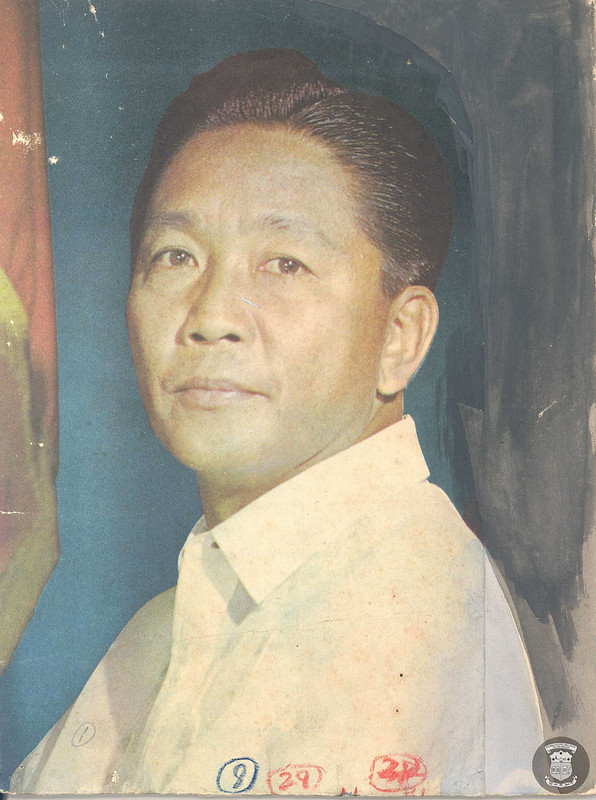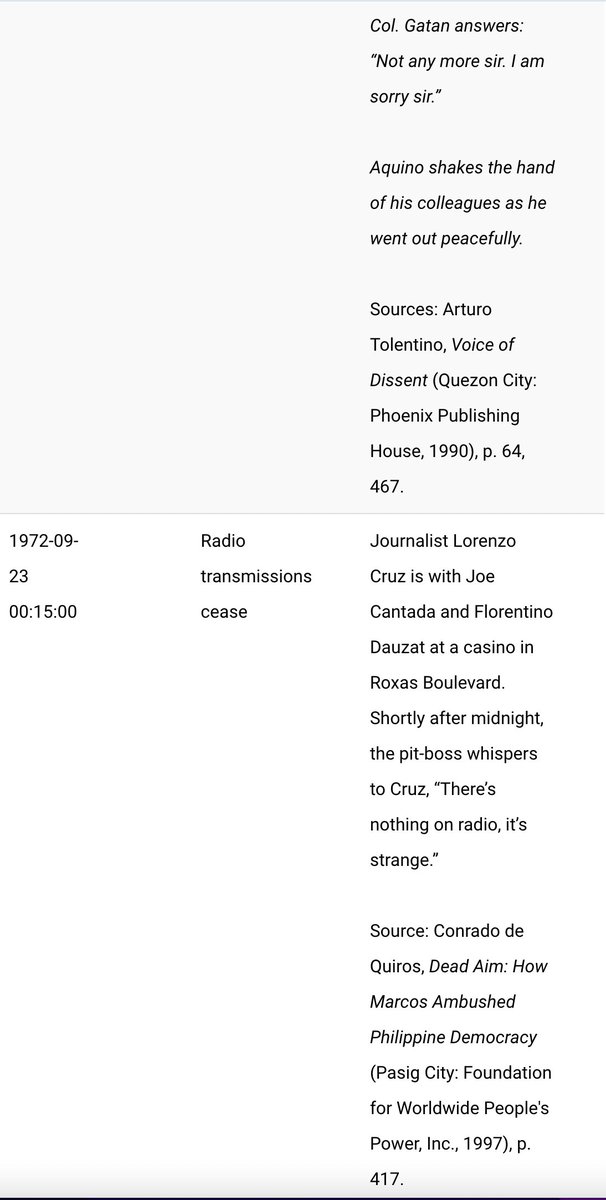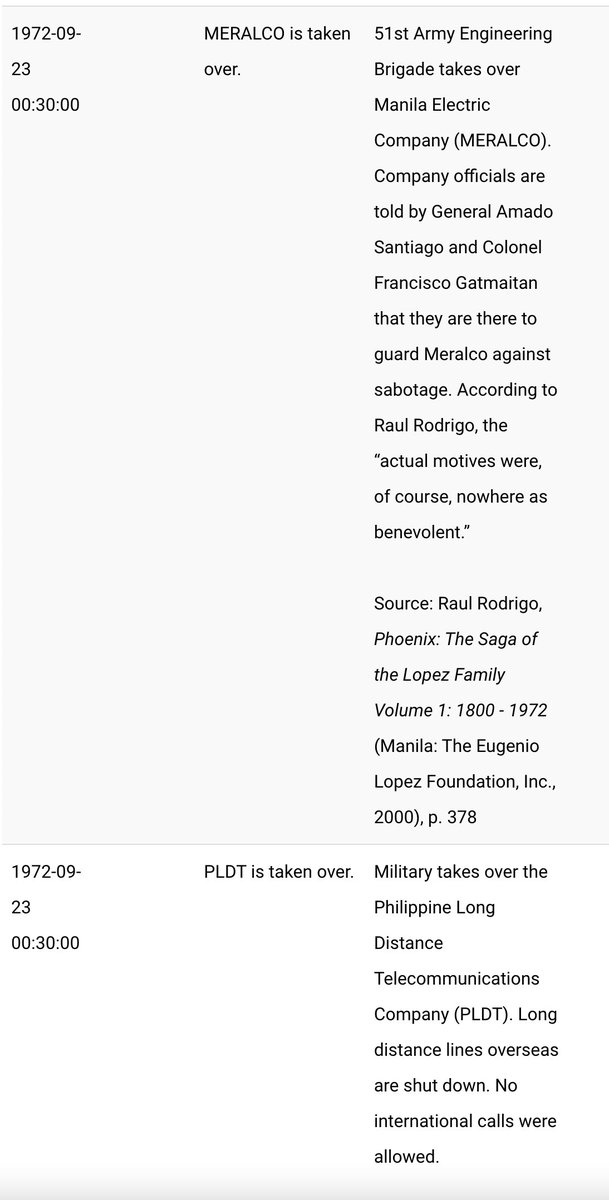
(thread) The real question we have to ask in remembering #ML50 is less how did Marcos manage to get away with it, but rather, how did so many who knew what was coming, fail to stop it? The timeline reveals to us it was like a trainwreck in slow motion. philippinediaryproject.com/2021/08/27/a-t… 

I have my own theories from reading up and listening to those who were active then. My theory is it took 1962-76 he actually did it in a lot of stages. What Makoy had going for him: every institution that could resist had cells of Marcos minded people. In media, Doroy Valencia...
in the courts, Fred Ruiz Castro, the Ilocano generals and all the colonels pissed off with the Commission on Appointments; legions of parents freaked out by hippies, priests and bishops freaked out by Reds, ditto businessmen big and small. Against him the usual intelligentsia...
but with the intelligentsia with no political sense but so much righteousness it pissed off the middle class, but also a sub-group of thementranced by the idea of recreating society in a grand social experiment at Marcos' instigation;
again, media that was sounding the alarm but pissing off people like businessmen, and most everyone who thought they had more time because FM wouldn't move until closer to November 1973, as his term was ending. Most of all Marcos had sized up everyone's price: and most everyone
proved to have a price. Sen. Pres. Puyat and Speaker Villareal and most everyone in Congress were ok with replacing Congress with a unicameral national assembly; Concon delegates looked forward to sitting in the national assembly provided they approved the Marcos-written charter.
I strongly suspect even ex-Pres. then VP Macapagal and Lopez looked forward to the chance of being ceremonial prexy with FM as PM. They all thought after a temporary crackdown by 1973 they would all be back. This was FM's deal to all of them and they happily took it.
Then FM double crossed them repeatedly: he postponed convening the interim National Assembly to 1974. Then he postponed convening it to 1975. By the time he abolished the Interim National Assembly in 1976 no one could fight him anymore.
So everyone could be divided and conquered. There's a great quote in Raissa Robles' book where a decade after martial law had been imposed, former Speaker Villareal told Marcos, you had us fooled, we thought it would last only a year or two and here you are, still, or something.
How Marcos sandbagged institutions by wrapping them tight in ribbons of legalities he himself created, is enumerated here: quezon.ph/2007/09/17/the…
And how he accompanied this with veiled and not-so-veiled threats, when he wasn't actually locking up people, is recounted here: quezon.ph/2014/09/22/sho…
And this is why, as recounted here, it took most of 14 years for a fragmented, divided, society to recover its sense of independence and unite: quezon.ph/1996/02/25/the…
What happened since --how we got from kicking out a Marcos to electing one with the 3d highest mandate in our electoral history, requires telling several stories. First, let's look at the presidency itself: quezon.ph/2022/02/18/my-…
Second, let's look at the rise and fall of our present 5th Republic: quezon.ph/2022/02/24/117…
Third, let's look at the media and what's happened to it over the same period: quezon.ph/2022/01/22/104…
Fourth, let's look at what the Marcoses were doing from 1992 to 2022, to me, the period of their plotting, and achieving, Restoration: quezon.ph/2021/11/28/med…
Fifth, how ot all came together in 2022 and the two nations the election revealed: quezon.ph/2022/05/31/rot…
Try this exercise. Look at the videos from 1965-1973 and see how you'd react to the sights and sounds of the era. Do them same for 1973-1983 and then 1983-1986. youtube.com/playlist?list=…
And of course, the fun activity of counterfactuals --the what ifs. quezon.ph/2017/02/25/spo…
• • •
Missing some Tweet in this thread? You can try to
force a refresh



































